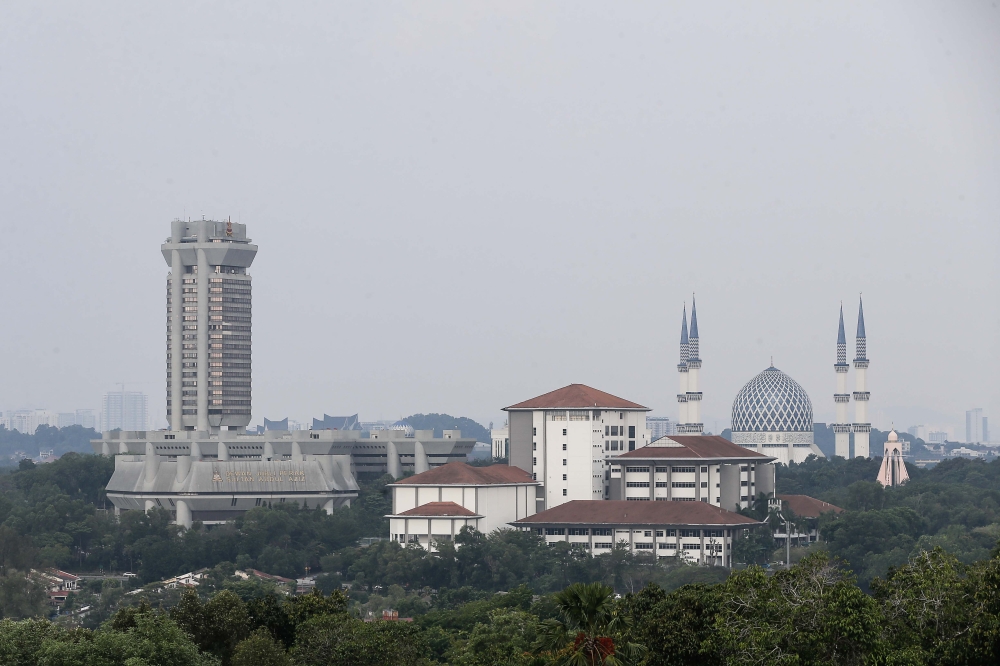OCTOBER 26 — Khir Toyo declared Selangor to be a developed state in 2005. He was eager to proclaim Selangor’s ascendancy to arrive there long before the rest of Malaysia.
Almost 20 years have passed and there is no more certainty whether the richest state, let alone the rest of the country, is developed. To be there.
Politicians from all generations are eager to declare it in their time to claim credit for getting “developed”, but enthusiasm is not the basis to accrue the status. Neither is arrogance.
Does it matter? Whether Malaysia is a developed state?

It does in many ways. For it means many things.
An achievement, a threshold, a marker of evolution from a promising country to a mature one in the list of countries. A presence. Its people a cut above on average, at least appear so psychologically to the world outside this elite circle.
The World Bank, IMF, other international agencies and respected civil groups individually use all kinds of indices to generate an accurate and objective assessment. The large and comprehensive efforts to recognise the countries who are there underscores the prestige of being so.
But ultimately, a developed nation is brand recognition. And that recognition is not necessarily accompanied by acceptance.
Only a madman denies that the United States of America is developed, however a considerable part of humanity opposes America’s values and certainly politics.
In varying degrees are the respect for Japan, Germany, Canada or Australia. Or contempt in the case of Israel.
Then there are South Korea, Belgium, Netherlands, Luxembourg and the rest in the premier list.
After which comes the grey list, countries for self-evident reasons like demographics and economics, or less evident excuses like an abhorrence for democracy and the rule of law, sit outside the glamour of developed status.
Hungary, Turkey, Saudi Arabia, China or India for example.
It is not merely about having high income per capita or a space programme.
A minimum wealth is a prerequisite. A country with parts or communities still in dire financial condition struggles to pursue beyond basic needs, and is easily bogged down by exigencies like natural disasters.
This widespread minimum wealth is a licence necessary to proceed but not a guarantee of graduation.
It’s reflected in a strong economy advanced by a quality educated workforce which involves itself — professionally, socially and conscientiously — in deeds like taxpaying and percentage contribution of GDP for foreign aid. The country cares for others, those not in its sphere. The average citizen of the developed nation exhibits these traits.
As put, on average but not everyone.
The examples of extreme right-wing Alternative for Germany (AfD) and Trumpian Republican party challenge the dictum, as they fend off ferociously inclusivity and diversity, and humanity for the rest.
But here is a truer test of a developed nation, it may trip but its fundamentals — its democratic institutions, culture and intellectual tradition and along with its informed citizenry which is equally a resilient workforce — will get it back on its feet far quicker than pretenders. The pretentious fall, perhaps not soon enough, but when they do they go splat.
At this juncture, the mirror turns to Malaysia.
The federation is, too often, referred to as an upper-middle income nation — impressive but not quite arriving there.
Malaysia’s half century of petro-dollars threatened to propel it to the summit of greater nations but somehow it comes short.
A 0.39 Gini Coefficient score which measures economic inequalities places Malaysia much closer to higher achievers (less just societies) like Tanzania (0.41) and Costa Rica (0.43), and far further away from egalitarian pin-up poster-boys like Norway and Denmark (0.28).
Richer than many poor developing countries but less equally distributed than most developed ones.
Which also explains the chasms of experience for the pockets of wealthy zones in the city and the rest of the country. Or how removed democratic institutions are from the rakyat which dislocates participation.
The contrast is too stark, a country of many top luxury brand showrooms bothered by regions without clean water.
It appears those in power assumed overall wealth meant wealth for all.
Wealth distribution is only one part, there are many parts like the pace of social evolution. When an amply educated population turns with economic opportunities into an empowered population which upgrades itself within a fairer society into an enlightened population.
Freedom for a freer people is the lubricant necessary but those in power have long downgraded it to less freedom for a constantly monitored people, overwhelmed by propaganda which crushes earlier edition propaganda.
From the long-lingering Vision2020 to the turbo-charged last 10 years of 1Malaysia (2013-2018), Malaysia Baru (2018-2020), Malaysia Prihatin (2020-2021), Keluarga Malaysia (2021-22) to present Malaysia Madani.
If slogans generated development, those Danish have no chance in hell to compete with Malaysia.
It is clearer the extent or the mutation of our development is more decipherable when specifics are dissected.
To see how the who shape social goods for the country.
How being the interplay of roles, powers and efficacy. Citizens, their elected representatives, executive offices and civil servants form the who.
Social goods for first world communities like events, traffic, night markets, parking and adoption of practical but disruptive environmental practices, evaluating them tells far more than abstract data about the developed state of a country.
This column will in the coming weeks take on a number of them.
For now, it is instructive to end with the story that Khir, after an electoral defeat and losing leadership of the state, ended up six months in prison for abuse of power.
Perhaps before leaders declare their states or indeed the country developed, they themselves should be developed. First world leaders before first world status, that’s a quicker question to answer.
*This is the personal opinion of the columnist.






















